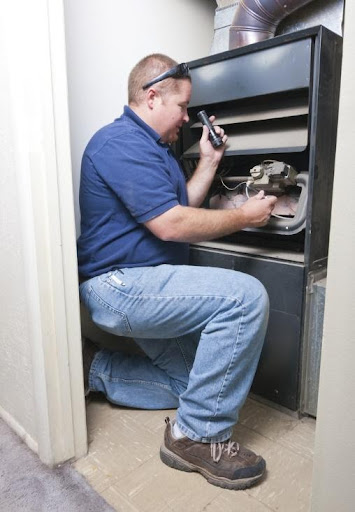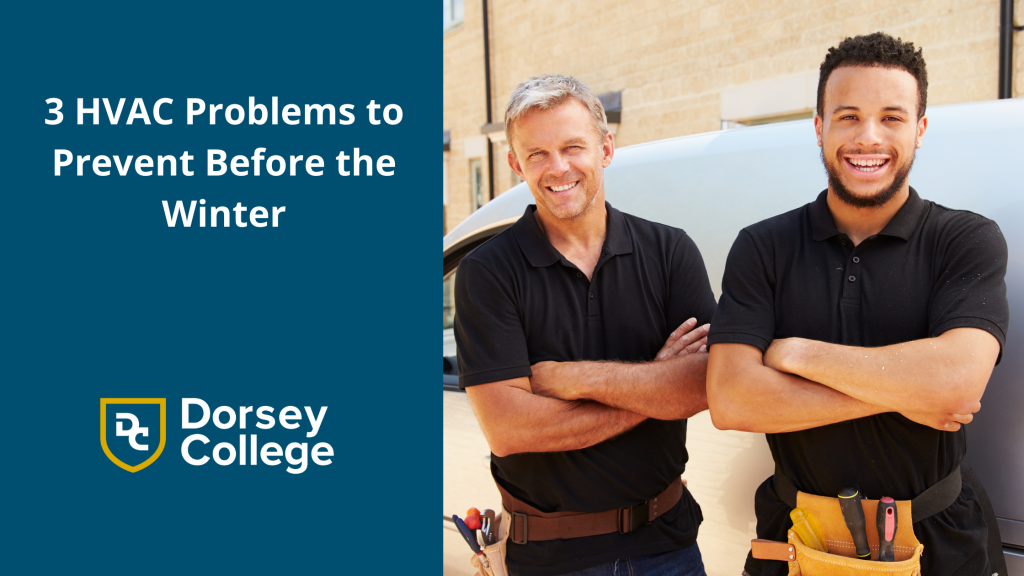 How often do you think about your HVAC system? You know, your heating, ventilation, and air conditioning? The stuff that makes your house comfortable when the temperature outside is…not.
How often do you think about your HVAC system? You know, your heating, ventilation, and air conditioning? The stuff that makes your house comfortable when the temperature outside is…not.
So, how often do you think about your HVAC system?
If you’re like most people probably not that often, if at all, until it breaks that is. Unfortunately, HVAC systems tend to break in extreme weather conditions, so essentially when you need them the most. And because your neighbors and friends also weren’t thinking about their HVAC systems, you might be wait-listed for a repair.
HVAC repairs are inconvenient and can be pricey. Sometimes they require a day off work as someone has to be home to let the HVAC technicians in the house to complete the repair. In the worst case, HVAC issues can be dangerous even deadly! Basically, a repair is something you’ll want to avoid as much as possible.
According to our HVAC specialist Ken Thompson, there are lots of simple ways to prevent HVAC issues. With winter coming up, you’ll want to use these tips! This blog will go over 3 common HVAC issues as well as how to combat them.
HVAC Problems
1. Filters
Problem
Did you know that your HVAC system has a filter? According to Thompson, a lot of people don’t.
Dirty filters create airflow issues. The airflow issues are hard on both heating and cooling systems and can cause parts to fail sooner than they should. Particularly on the hottest and coldest days of the year, a dirty air filter can cause your HVAC system (and your wallet) pain.
Solution
Luckily, the solution to dirty furnace filters is simple. You just need to make sure you change your furnace filter every 1-2 months. Air filters don’t cost very much, especially compared to HVAC repair costs.
2. Leaks & Ignition Problems
Problem
Furnaces contain different types of ignition sources such as a hot surface ignitor, Spark electrode, and standing pilot ignition. If one of these parts is worn, damaged, or malfunctioning then the furnace will not ignite or complete the combustion process allowing the furnace to do its job by heating the home.
A/C systems can leak coolant, oil, and other components. Furnace leaks can become gas leaks which should be treated as an emergency. Gas leaks are dangerous for multiple reasons. A gas leak can quickly turn into a fire. Breathing in natural gas can quickly make you sick. Too much can be deadly much like carbon monoxide (see the next problem!).
Solution
HVAC systems should be inspected at least twice a year, before every heating and cooling season. During the inspection, all components of the HVAC system are checked to ensure they are in working order. By getting an inspection before something goes wrong, you’ll save yourself the inconvenience of having a broken HVAC system on an extreme temperature day.
Carbon monoxide detectors do not detect gas leaks. You can get a gas leak detector installed on your HVAC system though.
What to do if you think you suspect a furnace gas leak:
Shut your HVAC system off, avoid lighting anything, open doors and windows to ventilate your home, and exit the area. You should call your gas company if you notice an emergency leak in your home before reentering. ¹
3. Carbon Monoxide
Problem
Carbon monoxide is known as a silent killer. It’s quiet, odorless, tasteless, and exposure to it is extremely deadly. Even small amounts of carbon monoxide exposure can make you and your pets very sick. According to the CDC, about 430 people die of accidental carbon monoxide poisoning each year. ² A common cause of carbon monoxide poisoning is faulty HVAC systems making this the most dangerous HVAC problem on the list.
Solution
The most important step to preventing carbon monoxide poisoning is to invest in a carbon monoxide detector. Carbon monoxide detectors are as crucial as smoke detectors. Don’t place them near natural gas stoves or fireplaces, however³.
Like smoke detectors, regularly change the batteries in your carbon monoxide detector.
Another important step to prevent carbon monoxide poisoning is to get your HVAC system checked every heating season. This way HVAC technicians can ensure that your system is properly ventilating and solve whatever leaks might occur before they become deadly.
What to do if you think you suspect or detect carbon monoxide:
If your carbon monoxide detector goes off, or you suddenly start feeling the symptoms of carbon monoxide poisoning evacuate immediately. Treat the situation as an emergency and call your local authorities.
3 Tips for winterizing your HVAC system
- Furnaces should get a yearly Tune-Up prior to the heating season to ensure safe operation and proper function of the system.
- A/C units should be cleaned and covered for the winter including any debris removed inside and around the unit. The unit’s power should be turned off from the breaker panel while not in use for the heating season.
- Reduce heat loss through windows and cracks. Plastic covers and rubber padding may be used for doorways and windows to insulate and reduce the amount of heat escaping the home.
HVAC Systems Technician training program | Dorsey College
If you enjoyed reading about how to prepare your HVAC System for winter and enjoy fixing things, training for a career as an HVAC Systems Technician could be right for you. The HVAC Systems Technician training program at Dorsey College is designed to be completed in less than a year. Students in this program have the chance to study maintenance, inspection, troubleshooting and the repair of related equipment. An externship is also included at the end of the program allowing students to apply what they have learned in an actual occupational setting.
Want to learn more? Visit us online today to learn more about our HVAC Systems Technician program at Dorsey College.
Sources
- “What You Should Know about Furnace Gas Leaks.” Dick Kearsley Service Center, https://www.kearsleyservice.com/what-you-should-know-about-furnace-gas-leaks.
- “Carbon Monoxide Poisoning (CO).” Centers for Disease Control and Prevention, Centers for Disease Control and Prevention, 17 Mar. 2021, https://www.cdc.gov/dotw/carbonmonoxide/index.html.
- EPA, Environmental Protection Agency, https://www.epa.gov/indoor-air-quality-iaq/where-should-i-place-carbon-monoxide-detector.

